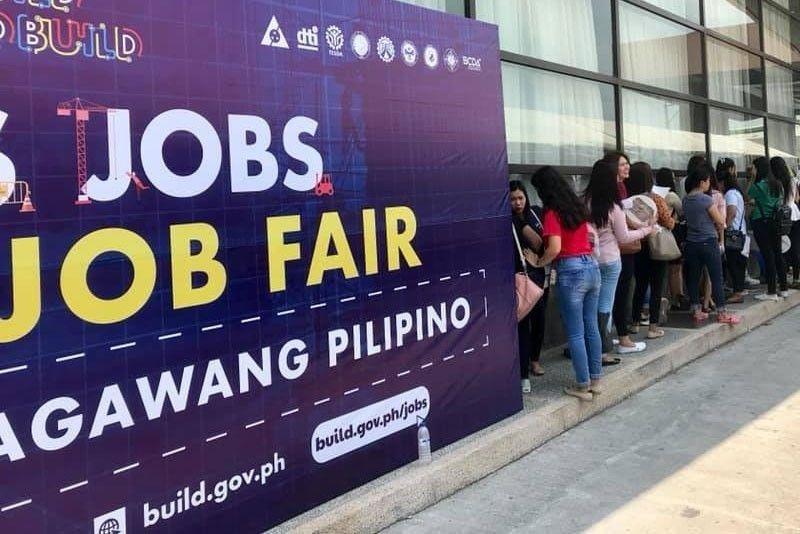2-year probation for workers doesn't serve marginalized, Probinsyano Ako rep told

MANILA, Philippines — A proposal to extend the period of probationary employment to two years is exploitative of workers and does not serve the marginalized as party-lists, like Probinsyano Ako that filed the bill, are supposed to, groups said.
“Ang panukalang gawing 24 buwan ang probationary period ng isang bagong empleyado ay isa na namang pagmamalabis sa manggagawa,” Kilusang Mayo Uno chairperson Elmer Labog told Philstar.com.
(The proposal to make the probationary period for employees 24 months is another act of exploitation against workers.)
House Bill 4802, filed in September by Rep. Jose "Bonito" Singson Jr., seeks to amend the Labor Code of the Philippines and allow employers to "avoid the automatic regularization" of employees in their workforce. The bill is pending with the House Committee on Labor and Employment.
“[A] period of six months under the present set up is not sufficient a period in order for the employer to determine if the probationary employee is qualified for regular employment, especially in positions which require specialized skills and talents,” Singson, who has been a member of the House for just three months, says in the explanatory note of the bill.
“Lalo nitong ginagawang temporaryo sa halip na maging regular sa trabaho ang manggagawa,” Labog said.
(This makes employment more temporary instead of making workers regular employees)
RELATED: Security of Tenure bill not a safety net for 'habitual absentees'
‘Endo’ or ‘5-5-5’
A probationary employee may be terminated “for just cause” or when he does not meet standards set and made known by the employer, according to the Labor Code.
The Philippine Independent Public Sector Employees Association defines “endo” and the similar colloquial term “5-5-5” as a labor practice “where workers are endlessly hired and fired every five months to prevent them from becoming permanent or regular employees, availing of mandatory bonuses and other benefits and joining a union.”
President Rodrigo Duterte asked the 17th Congress to pass a law abolishing labor contractualization as part of a campaign promise that he made in 2016 to end the practice of "endo" or "end of contract."
However, the Confederation for Unity, Recognition, and Advancement of Government Employees said that Duterte backtracked on his promise in 2018 when he said that ending contractualization is impossible.
In his third State of the Nation Address on in 2018, Duterte said that despite progress in the campaign against endo, ending the controversial labor practice was outside of his jurisdiction as chief executive.
READ: Duterte calls on Congress to end labor contractualization
“Much as I would like to do the impossible, that power is not vested upon me by the Constitution...Simply, it is not part of my territory,” the president said.
He certified the Security of Tenure bill as urgent and then later vetoed it, saying the bill "unduly broadens the scope and definition of prohibited labor-only contracting."
COURAGE said the decision was “to workers groups’ great dismay" since they "were initially optimistic of the Duterte regime with the said pledge."
‘Bogus’ party list
COURAGE National President Santiago Dasmariñas Jr. said that labor groups against contractualization do not benefit from “bogus formations” that used the party-list elections to win seats for traditional politicians.
"Had Singson and his party been truly representing the marginalized, they should have known that contractualization itself is already a bane to employees,” Dasmariñas told Philstar.com.
“It is already inhumane and unconstitutional to have people working for no security and benefits for six months, and now this?"
Probinsyano Ako partylist was included in poll watchdog Kontra Daya’s list of more than 20 party-list organizations that it said do not belong to marginalized sectors.
The Party-List System Act of 1995 enabled party-list representation so that "registered national, regional and sectoral parties or organizations or coalitions thereof, which will enable Filipino citizens belonging to the marginalized and underrepresented sectors, organizations and parties, and who lack well-defined political constituencies...to become members of the House of Representatives."
Security of tenure
COURAGE said what should be passed instead is the Security of Tenure bill, HB 3381, filed in August by Rep. Ferdinand Gaite (Bayan Muna party-list) and other Makabayan bloc lawmakers.
That bill is pending with the House Committee on Labor and Employment since August.
The proposed law would amend the Labor Code's provision on probationary employment to regularize "all workers or employees, regardless of the nature of employment, continuous or broken.”
Dasmariñas said that providing tenure security, benefits, and safe workplaces would make workers more productive.
"Provided with these, employees can focus on performing and training to be better," Dasmariñas said.
In 2018, there was around 8.5 million non-regular workers in private companies and 985,000 non-regular workers in government agencies, according to think tank IBON.
Repeat of the past?
Akbayan Youth secretary-general Justine Balane meanwhile said that if Singson's bill is passed into law, it would be particularly damaging to youth workers, citing that around 2 million people enter the labor force every year.
Balane also said that the proposed law would be a "continuation of the Duterte administration's assault on workers' rights."
"He rejected an already watered-down anti-Endo law earlier this year. He was never a friend to the labor movement as he claimed in his 2016 campaign," Balane said.
- Latest
- Trending


































